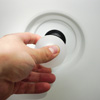 It’s common practice for people to check out what other consumers have written online before they make a major purchase, download an app or buy something on Amazon.
It’s common practice for people to check out what other consumers have written online before they make a major purchase, download an app or buy something on Amazon.
What you may not realize is at lot of consumer reviews on the Internet are bogus. In fact, 20 percent of Yelp reviews are fake, according to a Havard Business School study published last fall. And Bing Liu, a data-mining expert at the University of Illinois, Chicago, puts the overall number of fake reviews closer to 30 percent.
Who’s writing fake reviews on Amazon and other sites? It could be marketers or retailers, authors using pseudonyms, customers who get a deal for leaving positive feedback or services that exist solely for the purpose of writing them.
Last year, as part of its crackdown on companies writing fake reviews, the New York Attorney General’s office found job postings on sites like Craigslist.com, Freelancer.com and oDesk.com to hire people to write fake reviews, including this post from a New York City spa.
“We need a person that can post multiple positive reviews on major REVIEW sites. Example: Google Maps, Yelp, CitySearch. Must be from different IP addresses… So you must be able to have multiple IPs. The reviews will be only few sentences long. Need to have some understanding on how Yelp filters works. Previous experience is a plus…just apply --)we are a marketing company.”
It’s a duplicitous practice, but there are some clues to help determine if a review is concocted. According to researchers at Cornell University who have developed an automated algorithm to detect them. You can test it out on a site they developed called Review Skeptic. When you cut-and-paste review text into the site, you'll get a verdict on whether it's real or fake. The algorithm is based on the fact that fake reviews tend to include several features:
- A lot of superlatives and not much description. Phrases like “a must-read” and “life-changing” are giveaways.
- References to other people such as “my family” or “my husband.” Keep in mind, if the person writing the review is making it up, the story tends to stray farther away from the actual product.
- More frequent use of the first-person singular. Fictitious assessments tend to include the words “me” and “I” more often, as if to make the review seem more credible.
- Exclamation points and positive emotion. Truthful reviews use other kinds of punctuation, including the dollar sign.
We'd also add to the list:
- People who have written only one review on the site
- People who write only five-star reviews
- Reviews that sound like a marketing brochure from the company or use the full official name of the product
For more ideas, check out this Consumerist story, which has more than 30 reader-generated tips on how to ferret out worthless reviews, such as the good advice to only consider reviews that leave two to four stars in a five-star system. Or, my personal favorite: “Even if they're not fakesters, anyone who writes in ALL CAPS is an idiot and should be ignored.”
Ultimately, before being swayed by any isolated review, peruse a slew of them and give the most credence to those that are balanced and reflect that the writer can actually describe using the product.
Updated on 8/1/2014 with new data, resources and news.
[love and hate keys via Shutterstock]















From Will on September 04, 2012 :: 1:31 pm
The more obvious “reviews” on blogs usually repeat what’s in the marketing brochure, nearly verbatim.
one easy way to spot these is visit the manufacturer’s website and read their spiel.
On another note, you can get the opposite too.
people who get rewarded for negative reviews of a product or service.
Also note some do this just to be a troll, some because they are “fanboys” and others that are indeed compensated somehow. (i.e. some sites won’t post a negative review because they don’t want to lose that company as an advertiser.)
Reply